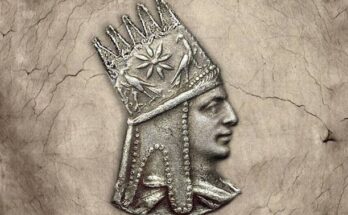The basic facts about human history
The adage “Those who don’t know history are destined to repeat it” is true. (Or anything comparable). Yeah, it’s crucial to learn your history—not just the famous figures and significant events, but also the smaller facts that shed light on their lives or the times they lived in. Perhaps it’s startling facts that causes you to re-evaluate accepted wisdom. That could be bizarre facts that is too unbelievable to be true. Whatever the case, the most entertaining basic facts are probably the titbits that are so bizarre and unique that they could never be replicated, even by someone who wanted to.
Understanding human history’s basic facts is essential to grasp the evolution of our species. From ancient civilizations to modern societies, these key points shape our journey through time and our shared global narrative.
Throughout history, humans have exhibited remarkable resilience, adaptability, and creativity. From the emergence of writing systems to the exploration of space, our quest for knowledge and progress has been relentless. This introductory knowledge forms the foundation for delving deeper into the complex tapestry of our shared past.
Once, turkeys were worshipped: historical facts

IMAGE CREDITS: istockphoto.com
Despite the fact that the turkey is today America’s favorite Thanksgiving dish, the Mayans revered these large birds in 300 B.C. and regarded them as conduits of the gods. As a result, they domesticated them and used them in sacred rituals. These were status and power emblems that may be seen all across Maya iconography and archaeology.
‘The British are coming’: historical facts
While everyone is aware of the legend surrounding Revere’s illustrious journey during which he is credited with shouting “The British are coming!” to alert the colonial militia to the impending enemy, This isn’t true at all. The mission was intended to be covert and quiet since British forces were skulking in the countryside of Massachusetts, according to History.com. Colonial Americans also still saw themselves as British.
Medals for fine arts at Olympic

IMAGE CREDITS: istockphoto.com
The Olympic Games featured fine arts competitions from 1912 to 1948. Literature, architecture, sculpture, painting, and music all received awards. Of course, the artwork had to have an Olympic theme. The inclusion of the arts was deemed vital by Pierre de Frédy, the man who created the modern Olympics, because the ancient Greeks used to host art festivals concurrently with the games. 151 medals were presented before to the art competitions being subsequently eliminated.
Women banned from smoking: historical facts
According to The Sullivan Law, a city ordinance that forbids women (and only women!) from smoking in public. Mulcahey fought about her rights to smoke in public during her hearing before the district court. She received a $5 fine.
John Adams- first president to live in white house
Before John Adams took office, no president resided there. George Washington is the only president to date who has not resided in the White House, which is interesting.
Edison didn’t invent light bulb

IMAGE CREDITS: istockphoto.com
Despite Edison’s astounding 1,093 patents, the majority of them were not his original ideas. He took the most of them. Warren de la Rue, a British astronomer and chemist, actually invented the first light bulb forty years before Thomas Edison, even if he did obtain the patent for it in 1880.
Origin of our species: historical facts
According to scientists, between about ten and two million years ago in what is now Africa, the evolutionary process that led to humans began with monkeys.
Our African ancestors
Because to climatic changes that caused the continent’s forest cover to decline in favour of grasslands, early people are considered to have dropped from trees. Little groups of early people in Africa are said to have roamed the continent nomadically while looking for food.
Palaeolithic life: historical facts

IMAGE CREDITS: istockphoto.com
Palaeolithic peoples might have believed in the afterlife, according to burials found with domestic items.
Stone age: historical facts
The majority of history curricula place a strong emphasis on the technological advancements of later times, but studying stone-age technology, such as friction firewalking techniques, stone blades, clothing, etc., can be just as fascinating. Arguably the most important development was humankind’s mastery of fire, which dates back to some 100,000 to 400,000 years ago.
Agriculture: historical facts
Human societies started to move away from being nomadic and towards village and city life through cultivating crops. For the first time, this allowed for significant population increase and had a significant impact on deforestation. It also caused communities to become more stratified. Agriculture, towns or other major communities, sophisticated technologies, and organized government are what defined early civilizations and continue to do so today (often kingship).
Mesopotamian civilizations
A long line of Mesopotamian civilizations followed Sumeria, engaging in almost continual conflict with one another. The Akkadian Empire was ascendant and militarily enlarging to the west and southeast by around 4,300 years ago. Elam, Amorite, Babylon, Hittite, Assyrian, and other early civilizations are among those in this area that are noteworthy. Indian civilizations: historical facts

IMAGE CREDITS: istockphoto.com
This was the largest early civilization, with about 5 million people living there. This civilization is renowned for its advancements in science, measurement, art, and other fields, as well as its comparatively low levels of social stratification. The Vedic culture came after the Indus Valley Civilization.
Conclusion
In conclusion, understanding the basic facts about human history is crucial for comprehending our shared journey as a species. From our early days as hunter-gatherers to the rise of complex civilizations, we have witnessed remarkable achievements, cultural diversity, and technological advancements. Recognizing the impact of significant events, such as the Agricultural Revolution and the spread of religions, helps us appreciate the foundations of our modern world. Human history has been a dynamic, sometimes tumultuous, but always intriguing saga, with the potential for continued growth and progress. By grasping these fundamental historical facts, we gain valuable insights into our collective heritage.
USEFUL LINKS:
Discover more such historical facts:
50 interesting history facts
Check out some memorizing tips about history:
How to memorize the modern history
Know about world history:
How to get familiar with world history





2 Comments on “The basic facts about human history”